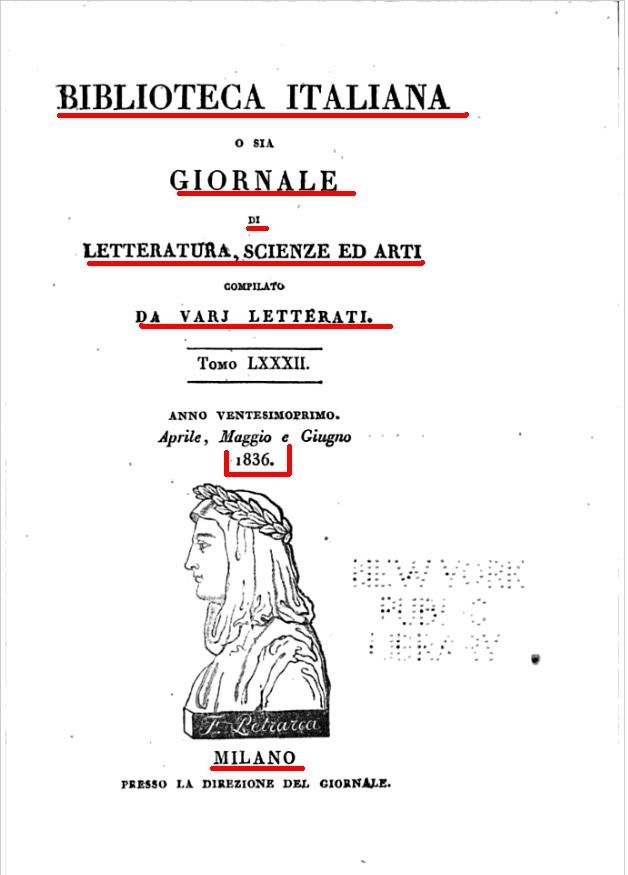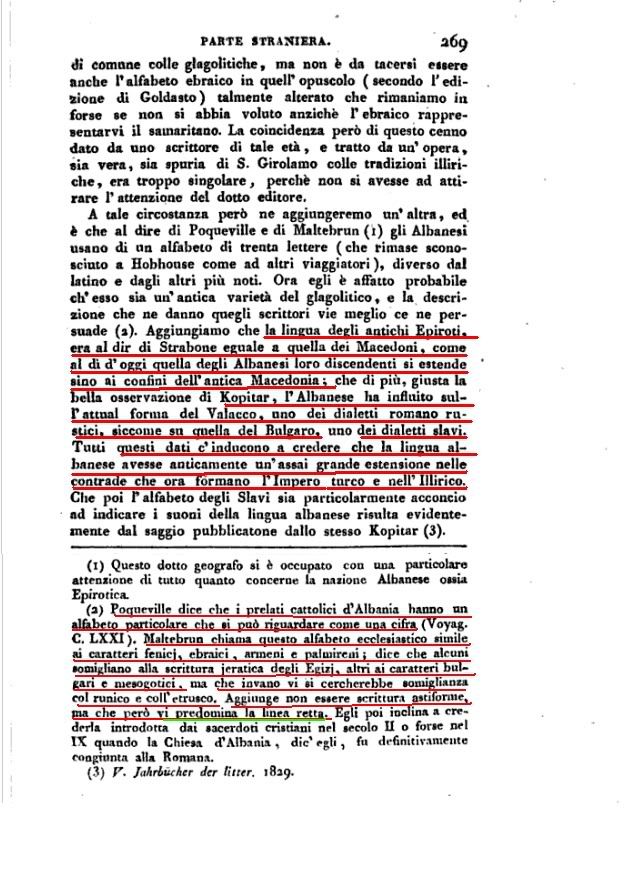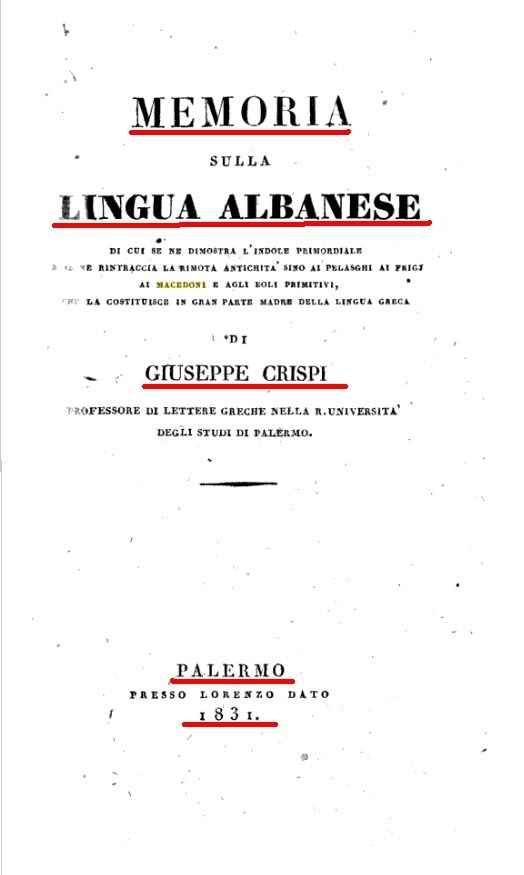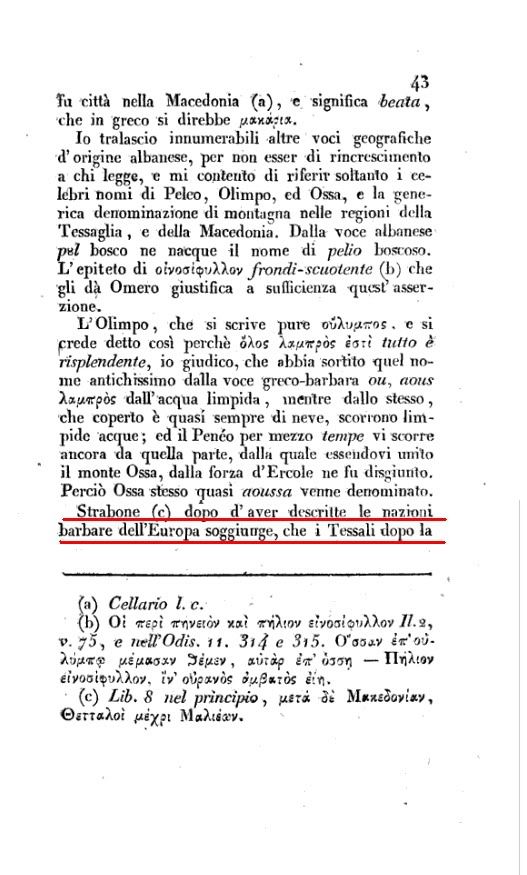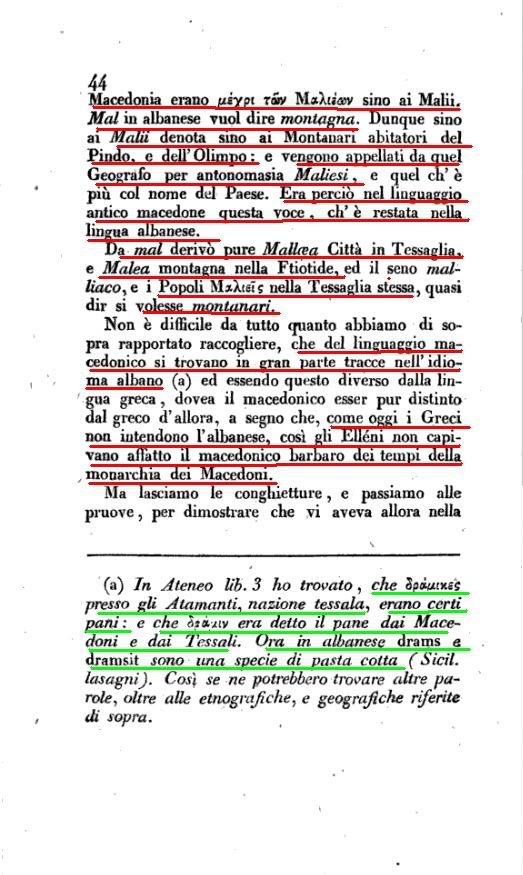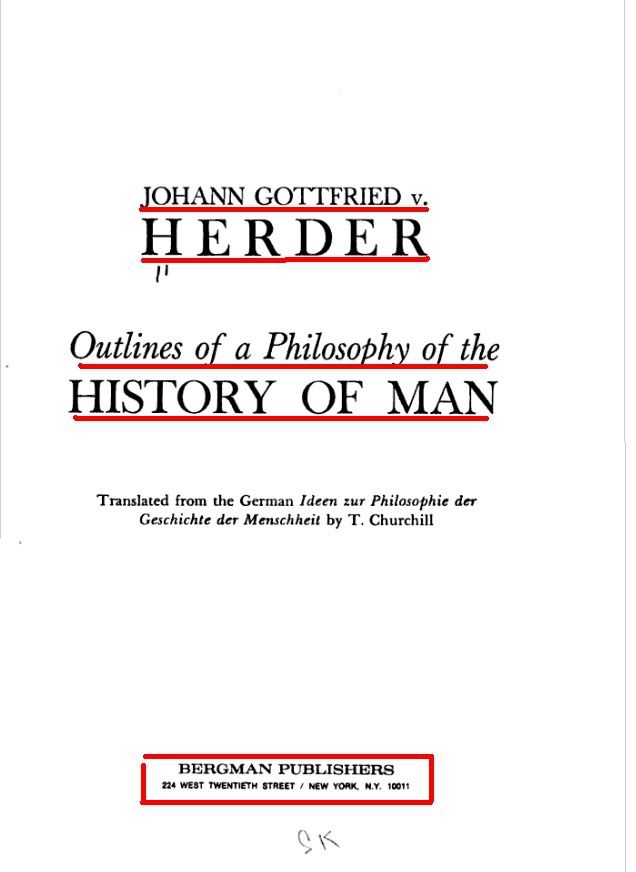
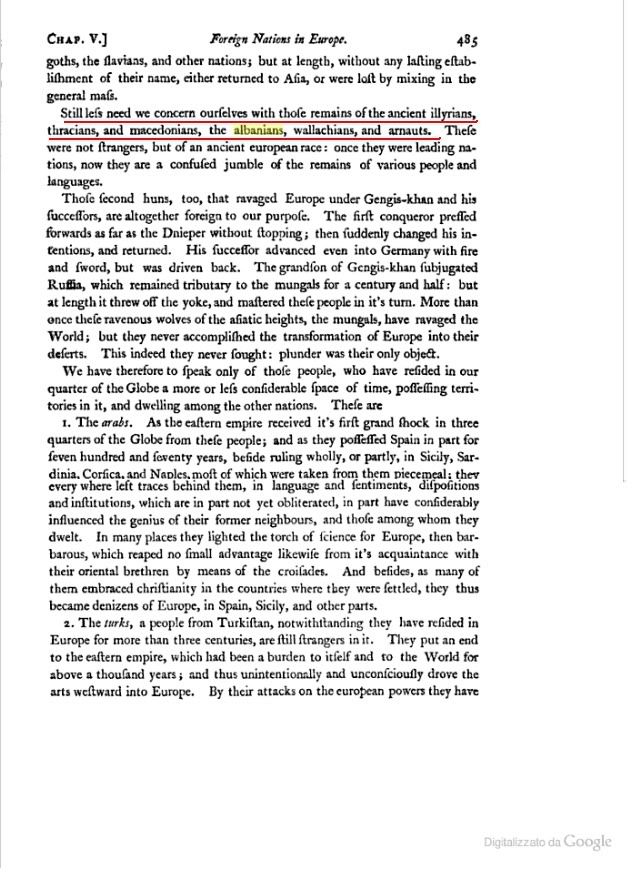






Pirro, te falemnderit per materialet e shkelqyeshme mbi Shqiptaresine e Maqedonise qe po i sjell ne kete teme. I lexova te gjitha pervec ketyre dyjave qe s'po hapen dot. Nese mundesh postoj serish!pirro wrote:

Arnaouts, or Albanians ; a people of mixed origin, probably the primitive inhabitants of Illyria and Macedonia, intermixed with Goths, Huns and Sclavonians, who have spread in the western part of Rumelia, along the coasts of the Adriatic and Ionian seas, and have sent colonies to the Neapolitan and Sicilian coasts. Their language has not risen to the dignity of a written one. They call themselves Skypetars ; by the Turks they are called Arnaouts. They are divided into several tribes, among whom the Suliotes (q. v.) are partly of Greek origin. Strong and warlike by nature, the Arnaouts were the best soldiers in the Turkish army. They are frank towards friends and superiors, but allow themselves, like all rude nations, every kind of artifice and perfidy towards their enemies. The oppression, under which they formerly lived, filled them with the desire of liberty For arts and trades they nave no inclination. Agriculture they esteem not sc honorable an occupation as arms. Their restless spirit is averse to the uniformity of peace. Yet they are not acquainted with the higher tactics ; they never form a line of battle, and do not understand the advantages of strong positions. Hence they are not so efficient against European armies as might be expected from their personal courage. They carry the choicest weapons. Upon their breast they wear a plate of silver, and their legs are covered with a kind of greaves ; their hair is cut short in front, and hid by a red bonnet, drawn down to the eyebrows.—Albania, part of the Turkish province Arnaout Vilajetti, a mountainous, maritime country, but very well adapted to the cultivation of wine, fruit, cotton and tobacco, lying along the Adriatic and Ionian seas, is the true country of the Arnaouts.—The Montenegrins (q. v.) in the hills of Montenegro, whom the Turks have not yet been able to van quish, are distinguished among them. Among the principal towns, we may mention Janina (q. v.) and Scutari, with 12,000 inhabitants (not to be confounded with the city of the same name in Anatolia, over against Constantinople), both residences of pachas; also Durazzo, the oid Dyrrhachium.
ENCYCLOPEDIA AMERICANA By FRANCIS LIEBER, page 383

Arnaouts, or Albanians ; a people of mixeil origin, probably the primitive inhabitants of Illyria and Macedonia, intermixed with Goths, Huns, and Sclavonians. who have spread in the western part of Rumelia, along the coasts of the Adriatic and Ionian seas, and have sent colonies to the Neapolitan and Sicilian coasts. Their language has not risen to the dignity of a written one. They call themselves Skypetars; by the Turks they are called Amaouts. They are divided into several tribes, among whom the Suliotes (q. v.) are partly of Greek origin. Strong and warlike by nature, the Arnaouts were the best soldiers in the Turkish army. They are frank towards friends and superiors, but allow themselves
2 M N
like all rude nations, every kind of artifice and perfidy towards their enemies. The oppression, under which they formerly lived, filled them with the desire of liberty. For arts and trades they have no inclination. Agriculture they esteem not so honourable an occupation as arms. Their restless spirit is averse to the uniformity of peace. Yet they are not acquainted with the higher tactics; they never form a Hue of battle, and do not understand the advantages of strong positions. Hence they are not so efficient against European armies as might be expected from their personal courage. The native A.isof a middle stature; his face is oval, with high cheek bones ; his neck long; his chest full and broad. His air is erect and majestic. Differing from the grave and sluggish deportment of the Turk, he is gay, lively, and active. The subjoined cuts represent the prevailing costume of the Arnaouts. They go constantly armed; and there are few who, in the prime of life, have not belonged to some of the numerous bands of robbers who infest the mountains of their native country, of Thessaly, and of Macedonia. This profession carries with it no disgrace : it is common for the A. to mention circumstances which occurred, " when he was a robber."—Albania, (q. v.) part of the Turkish province Arnaout Vilajetti, a mountainous, maritime country, but very well adapted to the cultivation of wine, fruit, cotton, and tobacco, lying along the Adriatic aud Ionian seas, is the true country of the Arnaouts.—The Montenegrins (q. v.) in the hills of Montenegro, whom the Turks have not yet been able to vanquish, are distinguished among them. Among the principal towns, we may mention Janina (q. v.) and Scutari, with 12,000 inhabitants (not to be confounded with the city of the same name in Anatolia, over against Constantinople), both residences of pachas; also Durazzo, the old Dyrrhachium.
The popular encyclopedia; or, 'Conversations Lexicon': [ed. by A. Whitelaw ... By Popular encyclopedia, page 273-274






The Thracians and the Illyrians were the original inhabitants of Macedonia. The ancient Macedonians of Alexander the Great are thought to have been a Thracian or Illyrian tribe (1).
(1) C. Anastasoff, The Bulgarians, Hicksville, NY: Exposition Press, 1977, p17
Shkeputur nga nje shkrim me i gjate:
http://www.mak-truth.com/arum.htm

In inquiring into the early history of the Macedonians, two question*, which are frequently confounded, ought to be carefully kept distinct, namely, the origin of the Macedonian people, and that of the Macedonian monarchy under the Temenidae ; for, while there is abundant reason for believing that the Macedonian princes were descended from an Hellenic race, it appears probable that the Macedonians themselves were an Illyrian people, though the country must also have been inhabited in very early times by many Hellenic tribes. The Greeks themselves always regarded the Macedonians as barbarians, that is, as a people not of Hellenic origin ; and the similarity of the manners and customs, as well as the languages, as far as they are known, of the early Macedonians and Illyrians, appear to establish the identity of the two nations. In the time of Herodotus, the name of Maccdtmis comprehended only rV> country to the south and west of the Lydias, for be oSserves that Macedonis was separated from Hottir-it by the united mouth of the Lydias and Haliacmon (Wtrod., 7. 127). How far inland Herodotus conceived that Macedonia extended, does not appear
A classical dictionary: containing an account of the principal proper names ... By Charles Anthon, page 777

...the aboriginal Macedonians were closely identified in speech, dress, and method of wearing their hair with the Illyrian tribes by the ancients
Anthropological essays presented to Edward Burnett Tylor in honour of his ... - Page 297
Barbara W. Freire- Marreco - Social Science - 1907

Ky personi mak-truth i bën këto me qëllime propaganduese , sikurse e gjithë antika u takon Aromanëve,ALBPelasgian wrote:The Thracians and the Illyrians were the original inhabitants of Macedonia. The ancient Macedonians of Alexander the Great are thought to have been a Thracian or Illyrian tribe (1).
(1) C. Anastasoff, The Bulgarians, Hicksville, NY: Exposition Press, 1977, p17
Shkeputur nga nje shkrim me i gjate:
http://www.mak-truth.com/arum.htm

